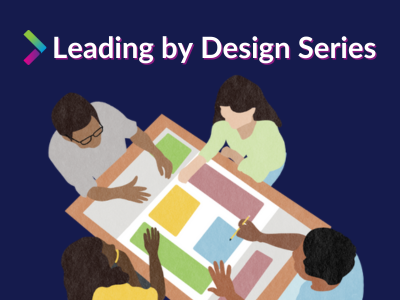School Improvement: Strategies That Can Make It Happen
Watch the RecordingListen to the Podcast
Improving schools requires an intentional, continuous process. To give learners the best possible learning experiences, leaders must strategically map out plans that engage multiple stakeholders in driving change.
In the edLeader Panel “School Improvement: Built on a Foundation of ‘Knowing What Works,'” district and state leaders highlighted systems and strategies that can launch successful school improvement initiatives with long-term results.
Mapping Out a Plan
Systems must be in place and implemented with fidelity to achieve school improvement results.
Vision, goals, and focus should be at the core of any effort, which involves complex steps: Deciding what to address, engaging stakeholders, gaining buy-in, executing and monitoring plans, measuring and building on success, and navigating barriers.
The panelists’ efforts highlighted replicable approaches—including these elements—resulting in long-term impact.
Fulton City School District
The Fulton City School District (NY) created a strategic coherence plan to focus direction, explained Superintendent Brian Pulvino. Deepening stakeholder understanding of what the plan addresses—and how—develops a collaborative culture and a collective commitment to the process and promotes accountability.
Principals meet with Pulvino and the deputy superintendent to review site-based goals and accomplishments and offer qualitative and quantitative feedback. District teams examine plans through a districtwide lens; school-level teams look at classrooms and individual students. Annual state assessments provide summative data that inform plan modifications. Start- and end-of-year and intermittent surveys year gauge student and staff feelings about belonging and instructional and learning experiences—all the data shape plan adjustments.
A primary success of the district’s approach is its “lens of learning,” a continuum that identifies a guaranteed viable curriculum (focused on learning wellness and life/career pathways) for students, families, teachers, staff, and the community. It gives parents/families a view of what takes place along PreK-12 students’ learning trajectories and supports staff and teachers in creating a cohesive learning experience. The continuum establishes access points that inform support for learners through Tier 1 through Tier 3 interventions.
Temple Independent School District
Dr. Lisa Adams, Deputy Superintendent of Academics and School Leadership of the Temple Independent School District (TX), recommended setting two to three goals that target schools’ most critical needs when creating a plan.
The district supports leaders in goal setting to address specific campus issues and guide the development, implementation, and measurement of a plan’s impact. Monthly meetings with school leaders help to determine whether schools are on track. Classroom walkthroughs and a review of student data offer insight into implementation and success.
Adams noted that a top success to date is ensuring equity in the classroom, focusing on instructional delivery and rigor, the quality of resources, and creating the same Tier 1 expectations for all students.
Lancaster-Lebanon Intermediate Unit 13
Lancaster-Lebanon Intermediate Unit 13 (PA) launched its school improvement efforts through a deep needs assessment with a root cause analysis to identify critical needs, explained Michael Imburgia, State Project Director for K-12 District/School Continuous Improvement. Surveys and focus groups with teachers, students, and parents helped to pinpoint essential issues and enabled stakeholder engagement.
CSI (comprehensive support and improvement) schools submit their plans through a comprehensive planning portal. To ensure the plans remain as “living and breathing” documents (to be updated as school context changes), the district uploads them to Google Docs, where schools can monitor the status of their action plans biweekly. During monthly meetings, schools discuss with statewide teams the status of their plan implementation. Every quarter, the district reviews the schools’ plan benchmarks.
Feedback invites schools to consider different strategies if desired outcomes do not materialize. The district provides tools and learning opportunities to strengthen schools’ efforts.
Imburgia believes the state’s systems-level view has encouraged a shift in schools’ thinking and practice. Schools lead conversations about achieving outcomes through evidence-based strategies rather than the state directing them.
Overcoming Roadblocks Toward Success
Obstacles abound in the school improvement process, but the panelists view them as drivers of forward movement. They recommended using continuous feedback loops, openly discussing challenges, offering training, working with implementation facilitators, regularly reviewing data to support progress, and celebrating small wins, all crucial to “staying the course” to see a plan through.
Positive Messages of Change
School improvement work is complex. Change may be slow. Pushback is without question. Yet, there are many successes, as small as they may be, along the way. Among the successes are messages to stakeholders demonstrating a commitment to the cause by leaders, districts, and schools. They are rallying cries that unite all to support change.
The Temple mantra is: “We all grow in Temple ISD.” It underscores the district’s continuous culture of growth to achieve continuous improvement. In Lancaster-Lebanon Intermediate Unit 13, pride is the primary message, capturing student accomplishments and achievements, evident in who they are, where they are from, and their work. In Fulton City, a culture of safety and value is at the core of its community messages: “It’s safe to speak up here!” and, “What we do is important!”
Learn more about this edWeb broadcast, School Improvement: Built on a Foundation of “Knowing What Works,” sponsored by Education Elements, a Scholarus Learning Company.
Watch the RecordingListen to the Podcast
Join the Community
Leadership Practices for Innovative Leaders is a free professional learning community where school and district leaders share and collaborate on personal leadership skills, professional learning and support for teachers and staff, student learning and well-being, communication with all stakeholders, and more.
We believe schools grow when people grow. When you work with us, we’ll start by learning about your school or district’s unique strengths and experiences, gathering insights about your students, staff, and community, and deeply analyzing your habits and practices. Using this initial data, we’ll help you tackle your toughest challenges, follow through on your biggest priorities, and create opportunities for each student to thrive.
Article by Michele Israel, based on this edLeader Panel






Comments are closed.